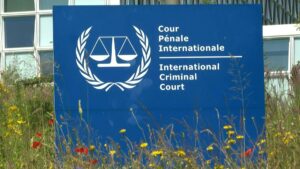Protests hit Lagos over cash crisis
Lagos, Nigeria (AFP):
Roads were blocked and businesses shut down by protesters as the police fired teargas to disperse them in Nigeria’s commercial capital Lagos on Friday. The protesters were demonstrating against banknote scarcity.
Nigeria has been struggling with a shortage of hard cash since the Central Bank of Nigeria (CBN) began to swap old bills of the local naira currency for new, re-designed ones, leading to a shortfall in banknotes.
The cash scarcity has triggered protests in major cities as angry customers attacked banks and barricaded roads in unrest just days before Nigeria holds a presidential election.
President Muhammadu Buhari in a Thursday broadcast sought to ease the scarcity by allowing old 200 naira bills to circulate until April 10. Old 500 and 1,000 notes are no longer legal tender.
On Friday, Lagos traders, markets, transporters and petrol stations started to reject the old notes, sparking riots in parts of the megalopolis of over 20 million people.
At Ojota, close to the busy Mile 12 food market, a crowd of protesters gathered as early as 7am and set fire to used tyres to block the popular Ikorodu road. Many motorists were stranded.
Police were quickly deployed to clear crowds in the area, an epicentre for popular unrest.
“We deployed our men to the scene to prevent a breakdown of law and order. No one was injured because we only used teargas to disperse the crowd,” a senior police officer shared.
He said the blockage on the road had been cleared to allow for “free flow” of traffic.
A transporter, Bawo Adegbenro, said unrest started when commercial bus drivers refused to accept the old 500 and 1,000 bills from commuters.
“Many people were stranded as they could not get a bus to their destination. This led to the riots in Ojota which the police have now quelled,” he said.
Business owners were forced to close to avoid attacks.
Friday’s protests were the latest to hit Africa’s most populous nation over the cash shortages, which are raising tensions before the February 25 ballot to elect the successor to Buhari.








